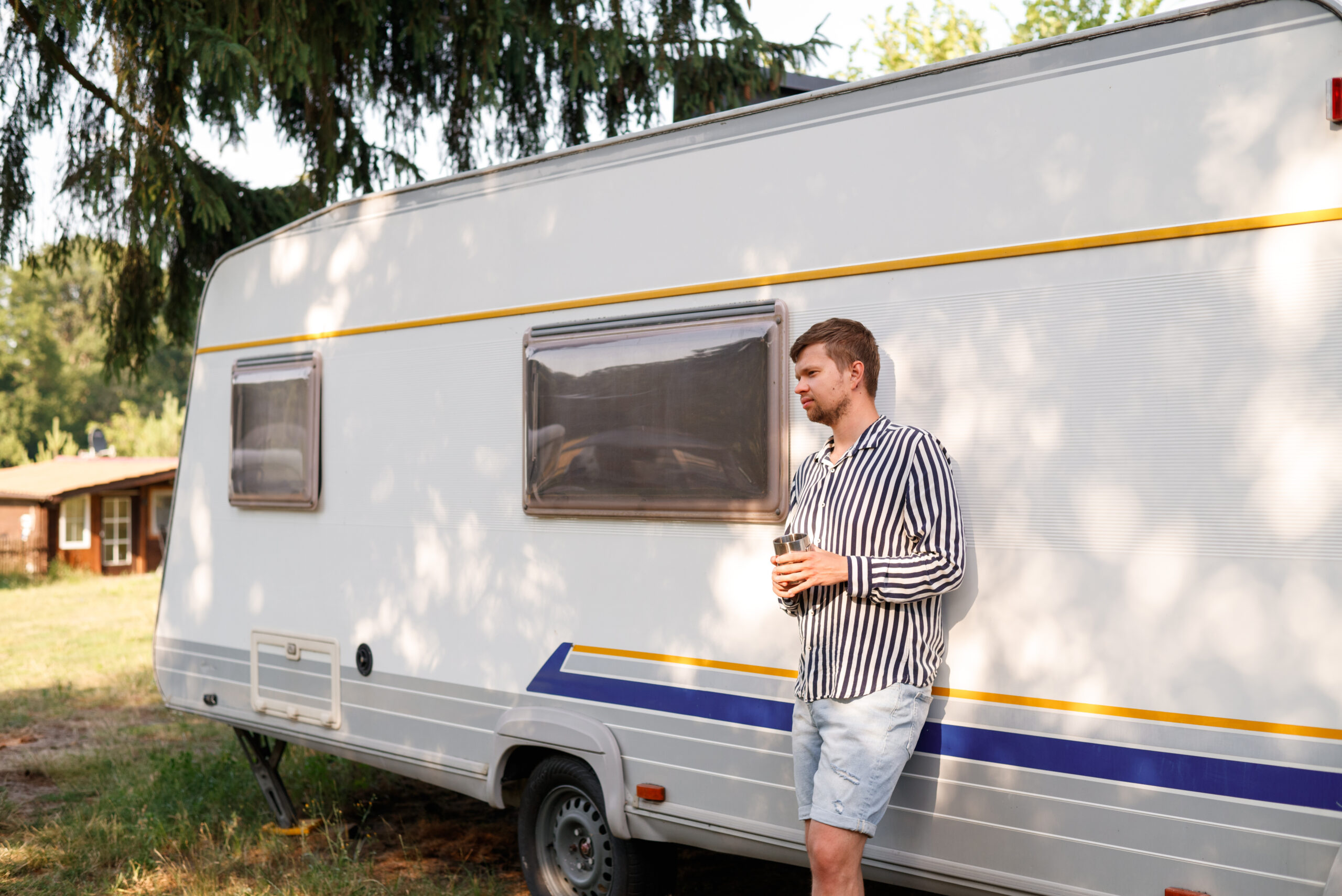We talk a lot about how to store and take care of your RV when it’s in long-term storage, typically over the winter months. But if you are “weekend warrior,” then your RV is still sitting around a lot during the high RV season. So, how do you protect your RV when it’s out of storage, but it’s not being used?
Cover.
The hot sun beats down on your RV whether you’re camping or not. You can extend the life and integrity of your roof components and avoid UV damage to your paint and decals by keeping the RV in a covered storage area and out of sunlight. It can be a barn or a carport, maybe even something you put up only for the hot months. If you don’t have easy access to a covered shelter, which would be preferred, then you can consider purchasing an RV cover that is waterproof, breathable, and anti-UV. Think of it as clothing that prevents sunburn.
Windows.
Another item to consider covering is the windshield, in order to protect the dashboard instruments from receiving direct heat. In addition, close all curtains and blinds to help prevent any sunlight from coming in, keep the interior temperature lower, and to help prevent fading and cracking of wood, plastic, and upholstered interior components.
Tanks.
Holding tanks should be empty unless you are camping or intending to go camping very soon. Standing water invites mold, mildew and algae, which isn’t great for tanks and humans alike. Make sure tanks are completely dry as well after draining.
Humidity.
Michigan almost always has humidity every day of the summer. This moisture can spell trouble for your RV, especially if it’s sitting around not being used and all closed up. You may want to open the overhead vent slightly (just make sure to close it if bad weather is forecast and the RV isn’t under cover) or routinely go out to the RV to air it out. You can also place charcoal or silica gel packets throughout the RV to help absorb moisture. Open all cabinet doors to prevent humidity from settling in.
Cleanliness.
Prevent insects and rodents from having a summer vacation of their own by taking preventative measures such as keeping the inside of the RV very clean, avoiding from storing food in the RV, plugging sink drains and shower drains, placing screens on exterior vents, and parking on a solid – rather than a dirt or grass – surface. Throw some dryer sheets around, both to deter rodents and to leave your RV smelling fresh between uses. You can also wax the exterior of your RV to better protect and extend the life of your RV’s exterior materials.
Routine.
Part of regular maintenance is ensuring that the RV drives and operationally works as it should. If the RV is hanging around, you should consider driving it around a bit every couple weeks or so as well as run a generator if you have one. Check the tire pressure and open windows for airflow, as well as check for pest damage. Look at any appliances to make sure they don’t contain mold.
By taking these steps, you can better assure that your RV will be ready to launch when it’s time for the next camping trip, as well as extend its life so that you can enjoy camping in it for seasons to come.

